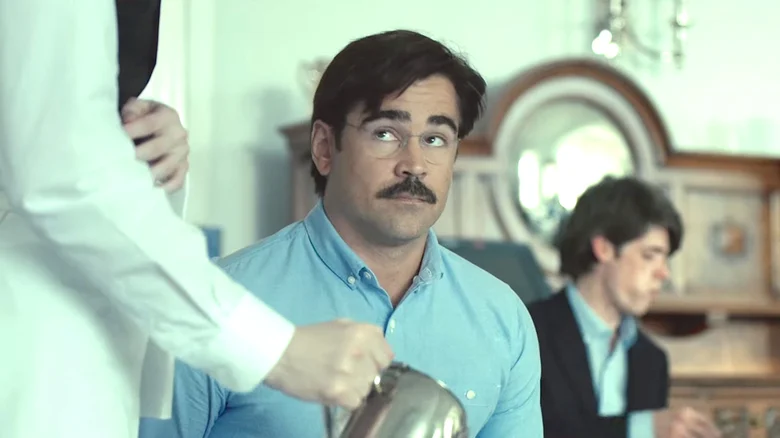Yorgos Lanthimos is known for his unique way of telling stories. The Lobster, his first film in English, helped the Greek director reach a much larger international audience. The 2015 surreal dark comedy shows a world where love is required, and people who can’t find a partner are turned into animals. The main character’s journey ends in a way that leaves viewers with more questions than answers.
The movie stars Colin Farrell and Rachel Weisz, with Olivia Colman, John C. Reilly, and Léa Seydoux in supporting roles. The Lobster comments on many parts of human behavior and relationships. It discusses things like social pressure, conformity, loneliness, isolation, rebellion, and the purpose of rules.
Its satirical tone creates a world that seems strange and unreasonable, but it’s believable enough for the audience to understand that the characters see it as their reality. The ending may not feel like the right one for a typical story, but The Lobster is far from traditional, and in Lanthimos’s world, this ending makes sense.
Plot of The Lobster
The Lobster takes place in a future society where being single is not allowed. Single people are sent to a hotel and given 45 days to find a romantic partner. If they don’t succeed, they are turned into an animal of their choice. The story follows David (Colin Farrell), whose wife recently left him for another man.
David goes to the hotel, along with his brother, who has already been turned into a dog. If he can’t find a partner, David decides he wants to be turned into a lobster. The guests at the hotel often choose partners who have similar, surface-level traits. At the hotel, David and the others take part in mandatory activities, designed to help people find a match. One of these activities involves hunting down loners, people who refuse to follow society’s rules and live in the woods, with tranquilizer guns to get more time to find a partner.
As the days pass and David still hasn’t found a match, he tries to form a relationship with a cold woman who seems to lack emotions. She pretends to enjoy the suffering of others, and they agree that they are compatible. After some time in a couples’ suite, David discovers that the woman has killed his brother, and he is devastated.

She realizes he is grieving and finds out their relationship was built on lies. In revenge, she tries to report him to the hotel management, suggesting that he should be turned into “an animal no one wants to be.” David manages to escape with help from an undercover loner posing as a maid, and she turns her own partner into an undisclosed animal.
David flees the hotel and joins the loners in the woods, where they have their own strict set of rules, including a ban on romance. David, who is short-sighted, meets an unnamed Short-Sighted Woman (Rachel Weisz), and their shared trait leads them to form a secret relationship and bond with each other.
The two are sent to the city for a few missions, where they must pretend to be a married couple, something they secretly enjoy. As they plan to escape, one of the loner leaders learns of David’s plan. As punishment, they blind the Short-Sighted Woman completely.
How does the movie end?
David defeats the Leader and leaves her bound in her grave for wild dogs to eat, referencing the moment when she forced him to dig his own grave. He and the Short Sighted Woman then go to the City and sit down at a restaurant. David asks a waiter for a steak knife and goes to the bathroom to blind himself.
This shows the self-destructive behavior of men in this dystopian society. Instead of looking for a meaningful connection with someone beyond just physical traits, they would rather harm themselves or do morally questionable things to find a partner.
David could have easily pretended to be blind, just like he faked being heartless, instead of actually removing his eyes. His literal short-sightedness reflects his inability to see better choices for himself.
“The Lobster” ends in a way that leaves things unclear, with the Short Sighted Woman waiting at the table for David to return. There’s no sound from the bathroom— is David still thinking about what he’s done, or has he sneaked away and left her there? Yorgos Lanthimos leaves this open to the audience as the credits roll on what might be the worst date movie ever. Or does he?
Earlier in the film, David says that he chose a lobster because he loves the sea. At the end of the credits, the sound of wind and waves is heard. Could this be a sign that David was unable to make the sacrifice for the supposed love of his life—just like the Hotel Manager’s husband—and has accepted his fate? After all, some lobsters can live for over 100 years. That gives them plenty of time to find a mate—without the pain of removing their own eyes.
